- Home
- Roy J. Snell
The Phantom Violin Page 6
The Phantom Violin Read online
Page 6
CHAPTER VI A STRANGE CATCH
In the meantime there were things to do. The boat must be dragged up andturned over, to afford them a shelter for the night. Balsam tips must begathered. These are nature's mattresses. Over these their blankets mustbe spread. This accomplished, they would think of supper.
Three pairs of eager hands accomplished all this in a surprisingly shorttime. Then, over a fire that had burned down to a bed of glowing coals,they brewed strong tea, toasted bread, broiled bacon, and in the endenjoyed a delicious feast.
After this, with a great log at their backs, they sat staring dreamily atthe fire.
"It's so good to live," Jeanne murmured.
"Just to live," Florence echoed.
"And breathe," Greta added. "You can't know how it feels to take onelong, deep breath of this glorious air, after you have struggled andstruggled just for a tiny breath of life."
For some time after that they sat in silence. Florence was thinking ofthe wreck, wondering what might be happening to it in their absence. Inher short sojourn there she had come to love the old _Pilgrim_ that wouldsail no more.
"A diver," she whispered low. "He came in search of something. I wonderwhat? Will I ever know?"
Jeanne's thoughts were in far-away France. The glowing coals reminded herof many another campfire that had warmed her on the sloping hillsides ofFrance.
"Bihari," she thought, "I wonder where he and his gypsy band aretonight?" He had returned to France. She had left him there. But gypsiesseldom remain in one place. "He may be back in America." She listened tothe rustle of cottonwood leaves. They seemed to say, "He is in America;you will see him soon."
"But how could this be?" She smiled at her own fancy. "He is a gypsy. Iam on an island. Can he drive his van across miles of water?" Butgypsies, she knew right well, went where they chose. Neither wind, stormnor broad waters could stop them.
As for Greta, she was hearing again the magic music of the phantomviolin. "Some day," she told herself, "I shall see that violin and thehands that created that entrancing melody." But would she? Who couldtell?
"Do you know," Florence at last broke in upon these reveries, "Swen is afine boy. I wish we could help him with that boat affair he told about."
"What boat affair?" Jeanne looked at her.
"Don't you remember? He said it would help the whole island. There aremany fishermen living all around the island. A boat comes twice a weekfor their fish. And the captain pays so very little for their fish! Inthese hard times money is so scarce the fishermen are being obliged tostay on the island all winter. And some of them have no opportunity tosend their children to school.
"Swen says they are trying to charter a boat so they can carry their ownfish to market. Not a big boat, but large enough. They've got some moneypledged. But it is not enough. So there you are."
Swen was a fine young fisher boy whose nets were set not far from thewrecked _Pilgrim_.
He it had been, who pointed out to them what a wonderful summer home thewreck might become. For a very little pay he had assisted them in fittingup their rooms. He had rented them a boat and had thrown in muchequipment besides.
"He's a fine boy," Florence repeated. "When hard times came he wasplanning to enter college. Now--"
"Now if we only could help him!" Jeanne put in eagerly. "He might go!"
"They live in a lighthouse," Greta said, "he and his people do. He toldme."
"How romantic!" Jeanne hugged her knees. "We should see him in hislighthouse tower."
"But most of all I wish we could help him," Florence said. "All weneed--" she prodded the ground with a sharp stick. "All we need is abarrel of gold. Greta wants a fine music teacher. I'd love to travel.Swen wants a boat for his people. And you, Jeanne, what is it you want?"
"I?" Jeanne laughed. "Only happiness for all my good friends."
"A barrel of gold," Florence repeated dreamily. "And perhaps it is rightbeneath us, in this very soil."
"Beneath us?" Greta stared.
"Why not? A very small barrel, even a tiny keg. This spot, the only levelground on the shores of this bay, has been a camping ground for countlessgenerations. The Indians came to Isle Royale to pound out native copperfrom the rocks. They built their campfires right here. Swen says if youdig down you will find the remains of those campfires still."
"How thrilling!" Greta's eyes were large with wonder. "Suppose we dugdown and found some treasure--a barrel of--. But then, Indians didn'thave barrels, not even kegs." Her dream faded.
"The voyageurs did," Florence encouraged.
"Who were they?"
"The traders who came after the Indians. They camped here on their wayacross the lake. Can't you see them?" With outstretched hands, the biggirl stared into the darkness that is Duncan's Bay at night. "Great,stalwart men, muscles like iron bands, faces browned by the sun, eyesever looking forward to fresh fields of adventure, the voyageurs!
"Perhaps--" her voice dropped to a low note of mystery, "perhaps theycamped here one night with a great bag of gold. Perhaps they wereexpecting an attack by Indians and, thrusting their gold in their waterbarrel, buried it here, never to return."
"Yes," Jeanne smiled doubtfully, "perhaps they did. Anyway, you are righton one score. It's a barrel of gold we need."
"Just now," Florence laughed, "what we need most is a good night'ssleep."
Their balsam-scented bed at last called them to rest. They wentreluctantly.
Greta and Jeanne were weary. After listening for a time to the constantrush of water against the rocky shores of Blake's Point and staring atthe ribs of their boat just over their heads, they fell asleep.
Florence did not fare so well. Lying there in that narrow bed beneaththeir boat, she found her mind going over the events of the day and ofthose days that had gone before.
The adventure with that great pike had excited her beyond belief. Ever achild of nature, she had experienced in this event a return to the wilddesires of her early ancestors. They had been wanderers, adventurers,hunters, fishermen, explorers. The world had changed. Her people were nowcity dwellers.
"And yet--" she felt her splendid muscles swell, "adventure has notpassed from the earth. There still are adventures for those who desirethem, clean, clear adventures. One--"
She broke short off to sit straight up. The stretch of level land onwhich they were camped was hardly a hundred feet wide. Back of that was asloping hillside where the spruce, balsam and pine of a primeval forestbattled for a place in the sun. From this forest she had caught somefaint sound, the snap of a twig, the click of some hard object against astone.
"Could be men," she whispered. "Just over that ridge is Tobin's Harbor.Many people there. But such a trail! Straight up! And on such a night.They--"
There it was again. She clenched her hands hard to prevent crying out. Aloud click had sounded out in the night. "Like the raising of a rifle'shammer," she told herself.
But was it a rifle? She must see. Lying flat down, she pushed the coversquietly aside, rolled over twice and found herself beneath the dark nightsky.
The moon was still shining. Her eyes soon accustomed themselves to thelight. Still lying flat on the damp earth, she listened with all herears. What she heard set her blood racing. "Footsteps," she whispered,"in the night."
They seemed very near, those footsteps. But were they human footsteps?She doubted it. And from this came a sense of relief.
Raising herself on one elbow she peered into the night. At that moment aloud groan sent the chills down her spine.
Next instant she was ready to laugh. A giant old patriarch of his tribe,a moose with wide-spreading antlers had stepped out into the moonlight.
"A moose," she whispered. "Swen says there are a thousand or more on theisland, and that they are harmless. But how old and feeble this oneseems!"
She had judged correctly. The moose was nearing the end of his days. Hisgiant antlers were a burden. He walked very s
lowly and with many a groan.On the island he was known as Old Uncle Ned.
The girl's lips were parted in a smile when, of a sudden, the bloodseemed to freeze in her veins. A second creature had appeared at the edgeof the forest--a great, gaunt wolf.
At this instant, with one more groan, Old Uncle Ned stepped into thewater prepared to swim across the bay.
The bit of wild life drama witnessed by the girl during the next momentwill never leave the walls of her memory. Neither the moose nor the wolfhad seen her. The moose, no doubt, smelled fresh water grass on the otherside. The wolf was eager for a kill.
Waiting in the shadows, the killer opened his mouth to show his whiteteeth, his lolling tongue. But the instant the aged moose was well in thewater and, for the time, quite defenseless, with one wild spring hispursuer was after him.
"He--he'll kill that moose!"
Scarcely knowing what she did, in her excitement Florence sprang to herfeet, seized the steel casting rod and, racing to the bank, sent the redand white spoon darting toward the swimming wolf.
The first cast fell short. The reel sang and she rolled in for a secondtry. All this she had done under the impulse of the moment, without trulywilling it.
Next instant she was awake to reality, for on a second cast the spoon,striking the wolf on the back, slid down to at last entangle thethree-pronged hook in the tangled hair of his bushy tail.
"Jeanne! Greta!" the girl screamed. "Wake up! I've caught a wolf!"
"Wake up yourself," Jeanne replied dreamily. "You are walking in yoursleep. You let that fish free long ago."
"No! No!" Florence, quite beside herself, protested. "Get up! Quick!Quick! I've caught a wolf. A real wolf of the forest!"
At the same time she was saying to herself, "Whatever am I to do?"

 On the Yukon Trail
On the Yukon Trail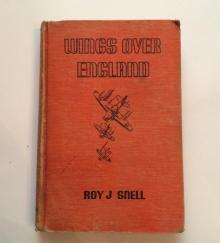 Wings over England
Wings over England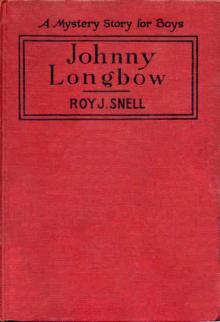 Johnny Longbow
Johnny Longbow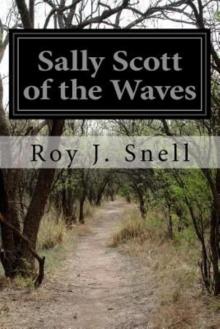 Sally Scott of the WAVES
Sally Scott of the WAVES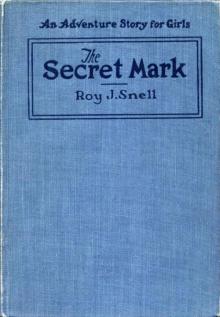 The Secret Mark
The Secret Mark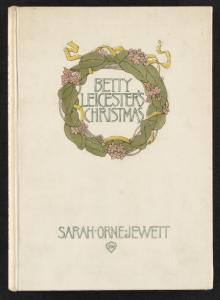 Betty Leicester's Christmas
Betty Leicester's Christmas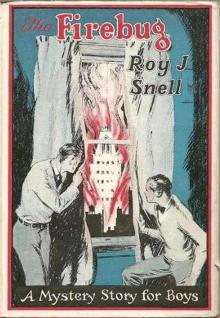 The Firebug
The Firebug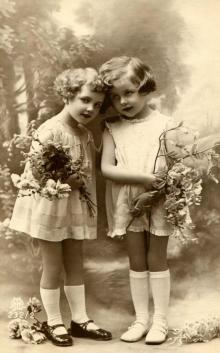 Minnie Brown; or, The Gentle Girl
Minnie Brown; or, The Gentle Girl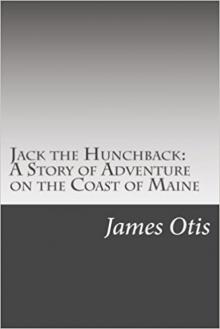 Jack the Hunchback: A Story of Adventure on the Coast of Maine
Jack the Hunchback: A Story of Adventure on the Coast of Maine The Silent Alarm
The Silent Alarm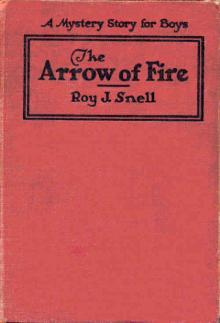 The Arrow of Fire
The Arrow of Fire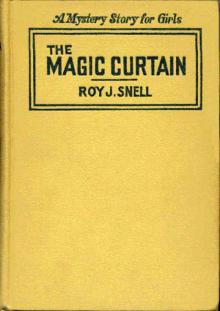 The Magic Curtain
The Magic Curtain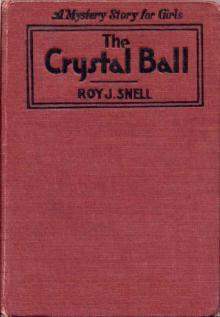 The Crystal Ball
The Crystal Ball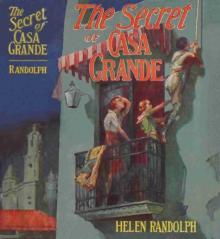 The Secret of Casa Grande
The Secret of Casa Grande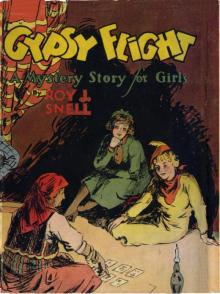 Gypsy Flight
Gypsy Flight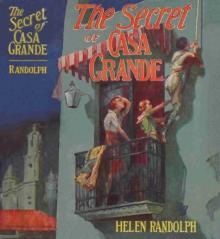 The Mystery of Carlitos
The Mystery of Carlitos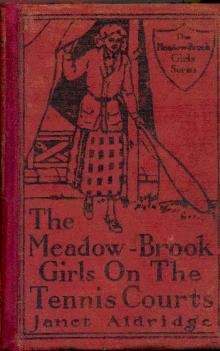 The Meadow-Brook Girls on the Tennis Courts; Or, Winning Out in the Big Tournament
The Meadow-Brook Girls on the Tennis Courts; Or, Winning Out in the Big Tournament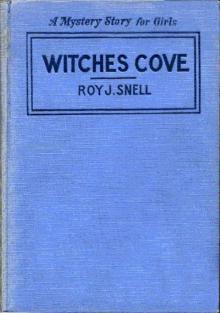 Witches Cove
Witches Cove Riddle of the Storm
Riddle of the Storm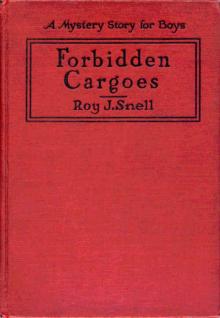 Forbidden Cargoes
Forbidden Cargoes Green Eyes
Green Eyes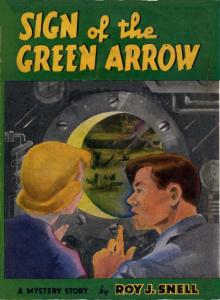 Sign of the Green Arrow
Sign of the Green Arrow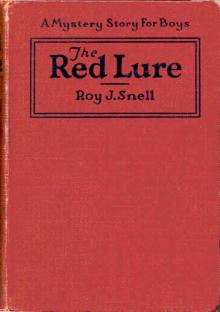 The Red Lure
The Red Lure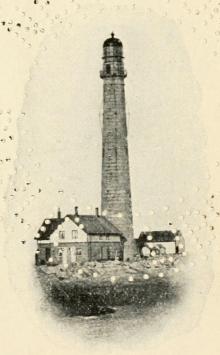 The Light Keepers: A Story of the United States Light-house Service
The Light Keepers: A Story of the United States Light-house Service A Ticket to Adventure
A Ticket to Adventure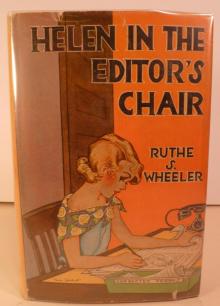 Helen in the Editor's Chair
Helen in the Editor's Chair Blue Envelope
Blue Envelope The Purple Flame
The Purple Flame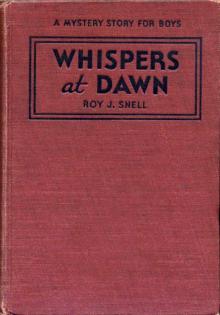 Whispers at Dawn; Or, The Eye
Whispers at Dawn; Or, The Eye The Rope of Gold
The Rope of Gold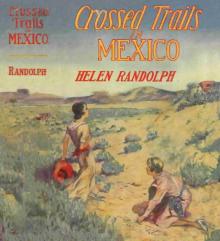 Crossed Trails in Mexico
Crossed Trails in Mexico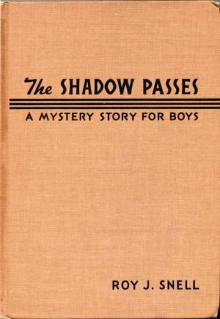 The Shadow Passes
The Shadow Passes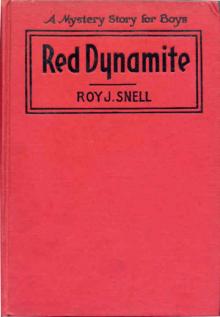 Red Dynamite
Red Dynamite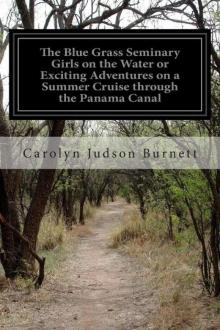 Blue Grass Seminary Girls on the Water
Blue Grass Seminary Girls on the Water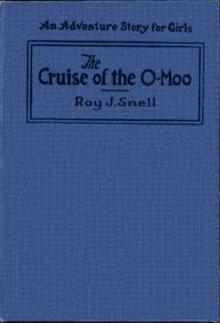 The Cruise of the O Moo
The Cruise of the O Moo